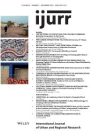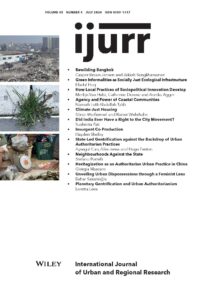In this article I look into the weakening state of housing justice in India, especially in the context of the Covid-19 pandemic and increased state violence. I ask how and why housing rights in India have mostly remained limited in their approach without being able to demand broader access to the city through right to the city discourse. In trying to find answers to this question, I examine housing rights activism in India historically. I show how, while some movements and campaigns organically began to make such broader claims without even invoking the term ‘right to the city’, these efforts were short-lived and those spaces were taken up by policymakers and courts. In this article I trace how a relative absence of a political language and movements’ growing proximity to the policy world has shaped a very particular trajectory of housing rights in India. Within the context of this relative absence of a right to the city discourse even quiet encroachments of the poor have failed to claim their moral right to the city. In this moment, as the Indian state takes a more hostile turn towards the poor and to civil-society organizations, I argue that it may be time to rethink ways of bringing back housing to the centre of political struggles in India.
Details
Written by:
Sushmita Pati
Digital Object Identifier (DOI)
https://doi.org/10.1111/1468-2427.13249
About DOI

